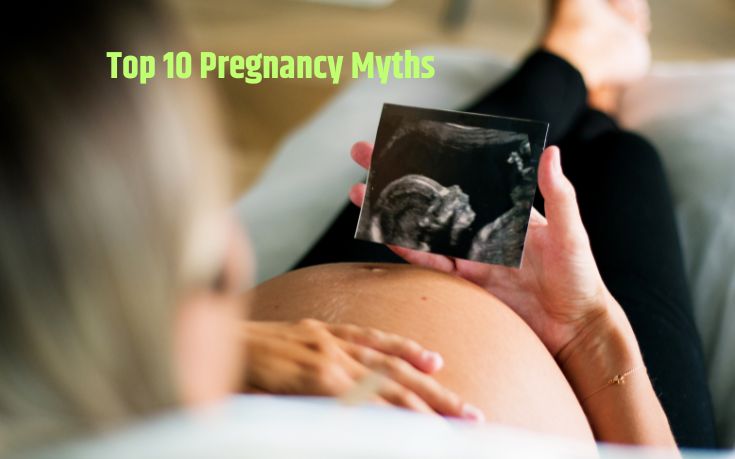Pregnancy is such a beautiful and fluctuating period; at the same time, it’s a period when future moms are showered with advice—most of it steeped in top 10 pregnancy myths rather than science. Such myths range from amusing to potentially harmful. Thus, the a need to weed out fact from fiction so that both the mom and the baby can be healthy and happy during this great time.
Top 10 Pregnancy Myths
Pregnancy can be a time for emotions to rise to the surface, not to mention a cascade of unsolicited advice. Everyone—friends, families, and even strangers—has a lot to say. Anyone suffering through all the advice will come to one realization: Not all of it is rooted in fact. Indeed, many myths might send expectant mothers into anxiety or precipitate really bad decisions. Here we present the top 10 pregnancy myths—debunked—for soon-to-be moms. Understanding what truth lies within these myths will help women go through pregnancy more knowledgeably and without stress.
Myth 1: Eating for Two
Probably the most popular among top 10 pregnancy myths is that pregnant women should “eat for two.” While it’s correct that nutritional needs increase during pregnancy, this does not necessarily mean that one must double her intake of calories. There is absolutely no need for additional calorie consumption during the first trimester. By the second trimester, an extra 300-350 calories a day are required, and by the third, about 450 additional calories are recommended. Focus on nutrient-dense foods rather than increasing quantity.
Myth 2: Morning Sickness Only Happens in the Morning
Contrary to its name, morning sickness can hit anytime in the day. This very myth indeed will mislead and scare women who might get this in the afternoon or evening. A minimal variation from person to person could only be attributed to hormonal changes. Ginger tea, having small meals frequently, and keeping oneself well-hydrated, whatever be the time, prove to be some of the most effective remedies against this issue.
Myth 3: Avoid Exercising During Pregnancy
Exercise throughout pregnancy is safe for most women, with many added advantages. Regular physical activity during pregnancy will hold you at a healthy weight, boost your mood, and decrease the risk of developing gestational diabetes. It would be good, however, to decide on the right forms of exercise. Low-impact activities like brisk walking, swimming, and prenatal yoga make for great options. Always consult with your healthcare provider regarding any commencement or continuation of exercise during pregnancy.
Myth 4: You can determine the baby’s sex by the shape of your belly
Many women believe that the shape and position of a pregnant woman’s belly can tell a person the sex of a baby. For example, carrying low and wide may refer to a girl, while high and narrow might refer to a boy. In reality, it is determined by the mother’s body type, the tone of her muscles, and how the baby is positioned. Ultrasound remains the most reliable method for determining a baby’s sex.
Myth 5: Spicy food will bring on labor
Knowing that there is this very persistent myth that spicy food may help kick-start labor, well, some foods are described as giving a spur to the digestive system; however, again, no scientific evidence exists to support that spicy food might bring on labor. Labour is a complex process triggered by hormonal signals. There is no safe method, dietarily, to start it off. However, if spicy foods are what you enjoy, they are safe to eat in moderation throughout pregnancy.
Myth 6: Heartburn means your baby will have lots of hair
This is among the top 10 pregnancy myths surprisingly is quite widespread and amusing. That heartburn during pregnancy signifies a hairy baby is anecdotal evidence more than science. Heartburn is caused by the hormone progesterone, which relaxes the valve between the stomach and oesophagus, leading to acid reflux. While some studies hold that there could be a link between heartburn and newborn hair, it is radically far from being a definite predictor.
Myth 7: Pregnant Women Must Avoid Seafood
It’s a common belief that women who are pregnant should avoid seafood because of the risk of mercury exposure. Though it’s right that bottom-line fish such as shark, swordfish, and king mackerel have high levels of mercury and thus should be avoided, most seafoods are entirely safe and largely beneficial. Salmon, sardine, and trout seafood constitute a rich source of omega-3 fatty acid. The leverage here is to choose low-mercury ones and consume them in limited amounts.
Myth 8: Cocoa Butter Prevents Stretch Marks
One of the common concerns during pregnancy is stretch marks, so most women turn to cocoa butter hoping that it might be able to prevent them. There is no concrete evidence that states corticosteroids or any other topical remedy will affect preventing stretch marks. Moisturizing will keep the skin in very good condition and maintain its elasticity, but genetics do play a significant role in their development. However, adequate hydration, a good diet, and gradual weight gain will help in minimizing their appearance.
Myth 9: You Should not Dye Your Hair
Most of the concerns regarding hair dye and pregnancy have something to do with chemical exposure. Most studies, however, indicate that it is normally safe to dye your hair during pregnancy, especially after the first trimester. If you still doubt though, you might want to consider plant-based dyes or some streaking; the former has less contact with the scalp. Always conduct a patch test to see if there’s an allergic reaction, as pregnancy can leave the skin quite sensitive.
Myth 10: Sleeping on Your Back Is Dangerous
Some claim that sleeping on your back during pregnancy can be dangerous for the baby. It is true; the weight of the uterus lying flat on one’s back may compress vital blood vessels, possibly reducing the flow rate. This is more of a concern in later pregnancy. The best position is sleeping on your side, particularly to the left side, as it optimizes circulation to the heart and the baby. However, when you wake up and find yourself on your back, there’s no need to become alarmed—just turn on your side again.
Final Words
Pregnancy can be challenging enough—add to that myths and misinformation, and one is in for a really difficult time. Let us now dispel top 10 pregnancy myths so every expectant mother can equip herself with correct information and make informed choices.
Be sure to speak to your healthcare professionals for advice and guidance relevant to your needs. Be confident in this journey, knowing both you and your baby are well-equipped for a healthy, happy pregnancy. This journey to parenthood is full of surprises and challenges without adding the extra burden of debunking myths. Remember, much of the advice from your loved ones comes from good faith, but decisions for the baby ought to be based on evidence. Stay informed; trust thy gut; love every second of this amazing journey.

